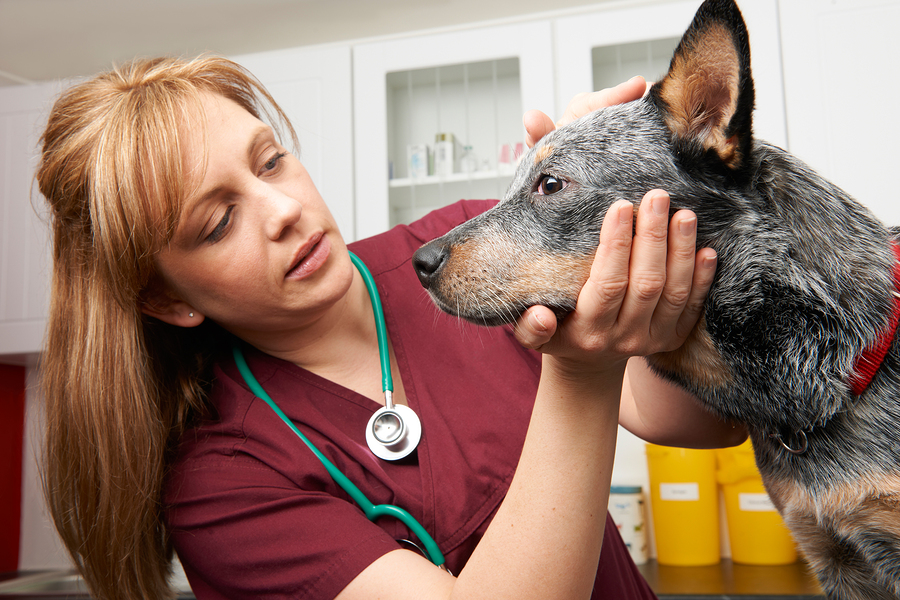So far, with more than 446,000 identified cases worldwide of COVID-19 (a figure that’s rapidly rising)– and an unknown number who have been infected but have not had any symptoms or minimal symptoms – only one companion animal has been found to have the virus, and even that incident is unclear.
On February 28 a pet dog in Hong Kong was identified with a “weak positive” of COVID-19 after “routine testing.” What that actually means is unclear.
What We Know Now
The dog did not demonstrate signs of illness, and it’s uncertain whether the virus identified in the dog activated. Laboratories used the real-time reverse transcriptase polymerase chain reaction (RT-PCR) method and the results indicate there was a small quantity of COVID-19 viral RNA in the samples. It does not, however, indicate whether the samples contained intact virus particles, which are infectious, or just fragments of the RNA, which are not contagious.
According to a press release from the diagnostic laboratory IDEXX, in thousands of tests, the company has seen no positive results for human coronavirus, COVID-19, in dogs or cats.
“IDEXX evaluated thousands of canine and feline specimens during validation of a new veterinary test system for the COVID-19 virus,” the company stated. “The specimens used for test development and validation were obtained from specimens submitted to IDEXX Reference Laboratories for PCR testing. These new test results align with the current expert understanding that COVID-19 is primarily transmitted person-to-person and supports the recommendation against testing pets for the COVID-19 virus.”
The dog in Hong Kong, a 17-year-old Pomeranian, showed no signs of illness during more than two weeks in quarantine. He tested negative twice and was released but sadly died afterward from unknown causes. The owner declined a post-mortem study.
The World Health Organization states on its website that to date, no evidence exists that the virus can be transmitted to humans by dogs, cats, or other pets. The WHO continues to monitor the situation and, like the CDC, advises frequent handwashing to prevent disease spread, including before and after handling animals. Dogs or cats with respiratory signs should be seen by their own veterinarian, who can suggest appropriate diagnostics for likely respiratory problems of dogs and cats.
Types of Coronaviruses
Dogs and cats are closely associated with us. And while we share many illnesses, there are many we do not share. For example, humans continue to get other coronaviruses that are species-specific to us, which cause what we call the common cold. Dogs and cats don’t get these coronaviruses. In individual humans, COVID-19 has the potential to be far worse than a cold because it’s a novel virus for which we have no previous exposure and thus no immunity.
Dogs can contract canine coronavirus, which humans do not get. Canine coronavirus causes at worst usually mild gastrointestinal upset, typically in puppies. It’s spread dog to dog via stool, and it’s primarily an issue in puppies from crowded situations.
Similarly, people don’t get feline coronavirus, which is usually so benign that cat caretakers have no clue their kitten has it. The normal feline coronavirus, also spread via feces, is ubiquitous among kittens, especially where there are many kittens, such as in shelters or catteries. In a small percentage of cats with the otherwise benign feline coronavirus, a mutation can transform the virus into a serious immune-mediated disease called feline infectious peritonitis, which also cannot be transmitted to humans.
COVID-19 likely started in a Chinese wildlife market where live exotic animals, some of which are endangered and obtained and sold illegally, are unfortunately kept and prepared (possibly with questionable sanitation) for food. It was first thought that the virus jumped from a bat species to the pangolin (distant relative of the anteater) to humans, but now experts are not certain that a pangolin was involved. No matter; this doesn’t mean the COVID-19 virus will further mutate to affect dogs or cats or any other species. Right now, unfortunately, the virus has “found a home” in humans.
The following resources provide the best and latest information about COVID-19:
American Veterinary Medical Association
Centers for Disease Control and Prevention
World Organisation for Animal Health
This article was reviewed/edited by board-certified veterinary behaviorist Dr. Kenneth Martin and/or veterinary technician specialist in behavior Debbie Martin, LVT.








